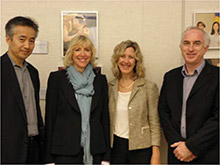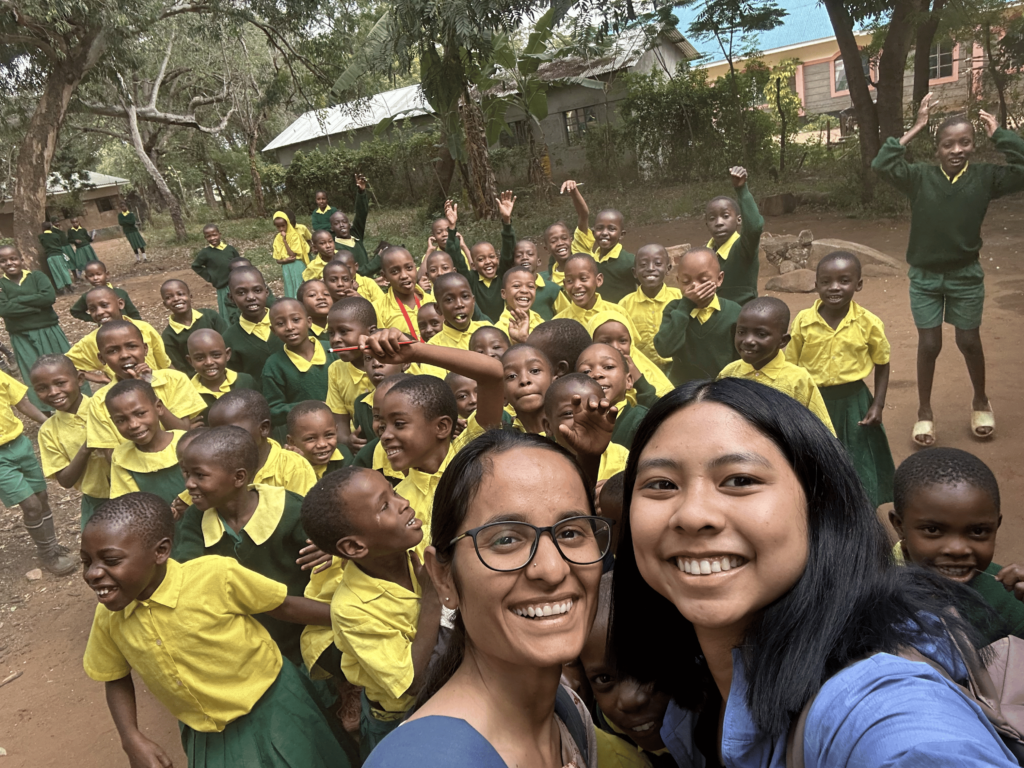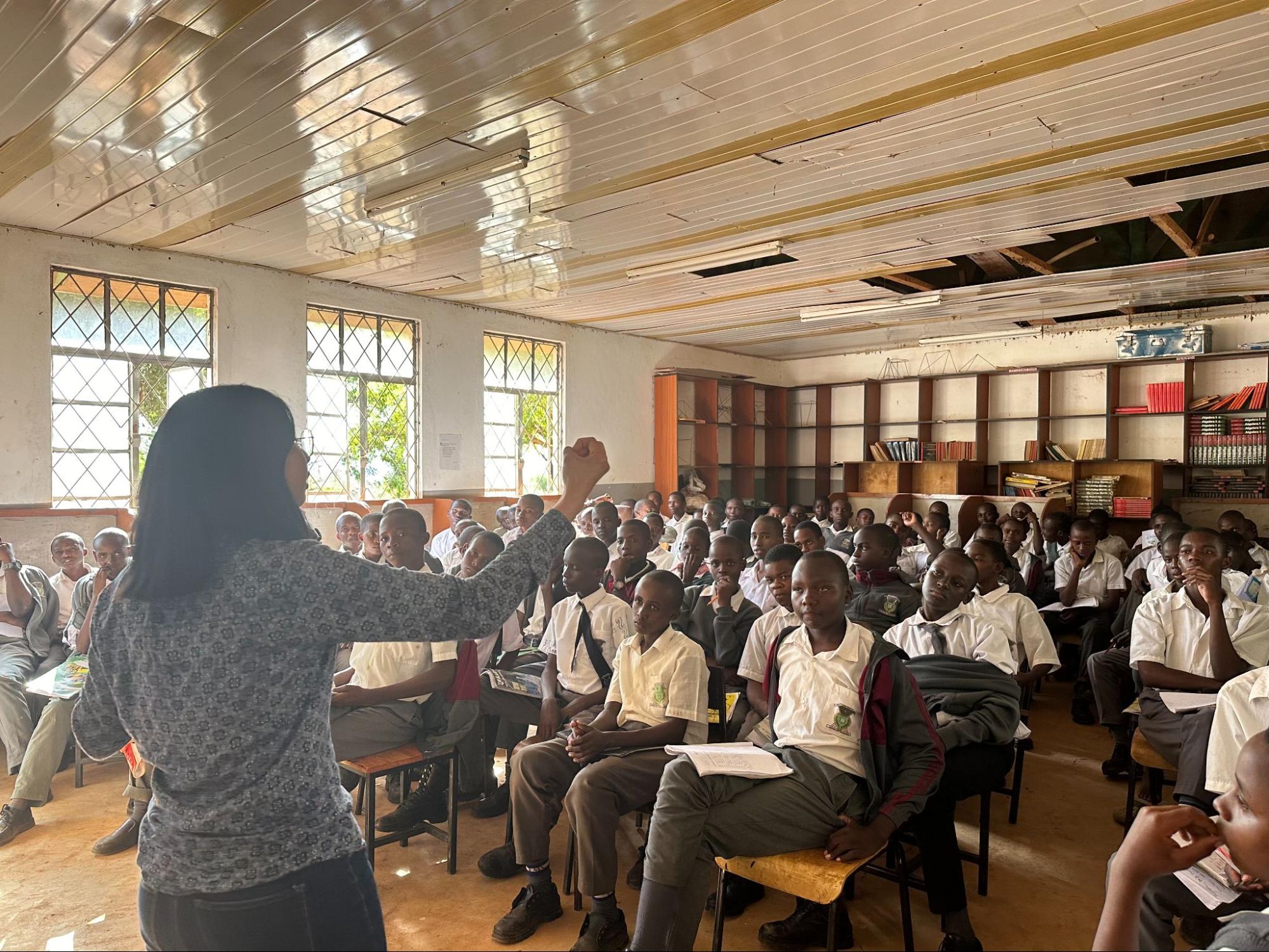by Luis Flores
Berkeley – “We may sound impressive and like a big deal today,” joked Richard C. Blum, closing a presentation by the staff of the American Himalayan Foundation, “but we started with an idea.”
As part of the Global Poverty and Practice Lecture Series, the Blum Center for Developing Economies was delighted to host Erica Stone, President of the American Himalayan Foundation, who shared her experience as a leader of a major non-profit organization in a presentation entitled, “Do Good, Be Kind, Have Fun: What it’s like to Run an NGO and What it Takes to Create Positive Change.” Stone, also a 5th degree black belt, a former chef at Chez Panisse, and a UC Berkeley graduate, began by explaining the inherent complexity of running an NGO. “I balance the reality on the ground, which is messy… with taking care of the people that make our work possible: our donors” she explained. The AHF, which operates in three relatively unstable countries, manages to improve the lives of 300,000 people by remaining close to the communities they support. “We always work with local partners,” explained Stone. “We don’t come in and say ‘we know what you need’… they tell us.”
Joining Stone in her presentation were AHF Vice President Norbu Tenzing, Field Director Bruce Moore, and Program Director Eileen Moncoeur. Each explained their experience working for the AHF and shared a project of particular interest to them.
Stone was especially proud to discuss the foundation’s “Stop Girl Trafficking” initiative. On average, 15,000 girls from the poorest regions of Nepal are trafficked and nearly 80 percent of them contract HIV. “Why are girls trafficked?” asked Stone rhetorically. “Three reasons: poverty, poverty, and poverty!” The American Himalayan Foundation representatives (L-R): Tenzing Norbu, Erica Stone, Eileen Moncoeur and Bruce Moore.

AHF is preventing young girls from being trafficked by funding primary education for the girls. The skills they develop give them value in the eyes of their communities along with the confidence to decide their own futures. Starting 12 years ago with only 50 girls, the AHF now funds the education of 8,500 girls with an impeccable success rate. “We have not lost one girl, not one girl, since we started this program,” Stone proudly affirmed.
Program Director Eileen Moncoeur shared the success of the Hospital and Rehabilitation Center for Disabled Children in Nepal. The fate of disabled children in Nepal is tragic. “If they can’t function, they can’t go to school, they can’t work in the fields, they can’t help at home, many of them are ostracized… these kids really live lives of isolation and in many cases humiliation,” explained Moncoeur. After nearly 20 years of working with the visionary Dr. Ashok Banskoa, the AHF has helped fund the treatment of 38,000 patients.
While impressed by the organization’s achievements, their approach to providing aid also resonated with the audience. “I think there are a lot of hard-chair academics that sort of sit here and talk about what people in other places should do and I found it really inspiring that they do connect with Nepal and talk to the local peoples,” reflected Tanay Kothari, a freshman interested in the Global Poverty and Practice minor.
The curious audience of students, faculty, and staff was clearly motivated by the achievements of the AHF. Veronica Chin, a fifth-year double major in Applied Mathematics and Chinese, attended the lecture after enrolling in a course with Professor Ananya Roy. She was inspired by Richard C. Blum’s challenge: “don’t be afraid to dream, don’t be afraid to start something new.” Veronica, even with job offers lined up, is determined to work with NGOs. She is even considering deferring her job offers to get involved now.
The next lecture in the Global Poverty and Practice Series, scheduled for October 24, will feature a panel discussion on “Microfinance: Poverty, Profits and Promises” led by Blum Center Education Director Ananya Roy. This panel will examine current microfinance strategies and debate their effectiveness in addressing the challenges of poverty.



